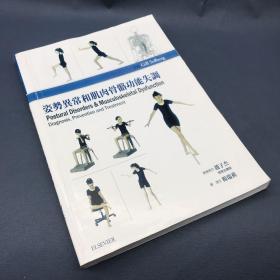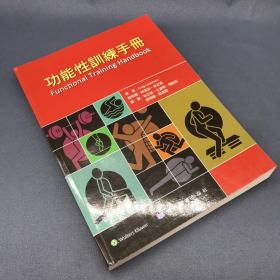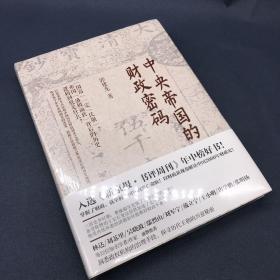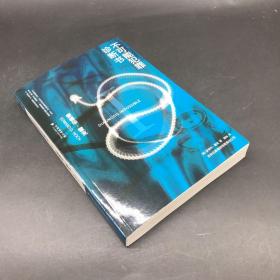
姿势异常与肌肉骨骼功能失调
无笔记划线
¥ 90 1.7折 ¥ 519.3 八五品
仅1件
云南玉溪
认证卖家担保交易快速发货售后保障
作者Gill Solberg 著
出版社Elsevier Medicine
出版时间2007-10
版次1
装帧平装
上书时间2022-07-29
- 最新上架
商品详情
- 品相描述:八五品
图书标准信息
- 作者 Gill Solberg 著
- 出版社 Elsevier Medicine
- 出版时间 2007-10
- 版次 1
- ISBN 9780443103827
- 定价 519.30元
- 装帧 平装
- 页数 304页
- 正文语种 英语
- 【内容简介】
- This evidence based book connects the theoretical and practical aspects of human movement and posture and provides basic information for therapists working with people with postural disorders. Practical material is approached area by area so that therapists can easily access the information they require. The anatomy and kinesiology of the locomotor/musculoskeletal system is covered and common pathologies and postural disorders reviewed. This book will be of value to Physical therapists, Osteopaths, Chiropractors, Occupational Therapists, those working in sports medicine and teachers of yoga, pilates, Feldenkrais, Alexander Technique and Structural Integration.
- 【作者简介】
- Dr. Gill Solberg is a graduate of the Zinman College at the Wingate Institute, Israel, with a specialization in postural disorders. During his graduate studies he specialized in Clinical Kinesiology and Adapted Physical Activity for populations with special needs. His doctoral thesis was on this subject. For 12 years Dr. Solberg has been a diagnostician and head therapist at the Holon Therapeutic Sport Center in Israel and was also in charge of hydrotherapy and adapted movement for children with postural disorders.Since 1994 he is a lecturer at the Seminar Hakibbutzim Teachers College and at the Zinman College of Physical Education and sport sciences at the Wingate Institute. He also conducts inservice courses for rehabilitative movement therapists. Dr. Solberg has published many articles and has presented his work at many professional conventions around the world.
- 【目录】
- Forewords Preface Acknowledgments Introduction Part 1 - Theoretical Background Chapter 1. The integrative approach to posture Kinesiological and other factors affecting human posture Main aspects of normal posture Chapter 2. Anatomical and kinesiological basis of posture Basic movement terms Movement planes in the human body The muscular system: anatomical and kinesiological aspects of maintaining posture The foot The ankle joint The knee joint The hip joint The pelvis The spinal column The rib cage The shoulder girdle The nervous system in posture The effect of kinesthetic ability on movement and postural patterns Part 2: SURVEY OF COMMON POSTURAL DISORDERS Chapter 3. Postural disorders of the spine: sagittal plane Kyphosis Lordosis Flat back Injuries to the intervertebral disc Relaxed posture Chapter 4. Postural disorders of the spine: coronal/frontal plane Parameters used in determining scoliosis Diagnosing scoliosis Therapeutic exercise for scoliosis Chapter 5. Postural disorders in the lower extremities and the identification of gait disorders Disorders in the lower extremities Identification of functional gait disorders Chapter 6. Postural disorders and musculoskeletal dysfunction in the upper extremities Stabilizing elements of the shoulder girdle Survey of common disorders of the shoulder girdle Adapted physical activity for functional disorders of the shoulder joint and shoulder girdle Part 3: DIAGNOSIS AND TREATMENT OF POSTURAL DISORDERS Chapter 7. Principles for a comprehensive diagnosis of postural disorders Questionnaire for parents Diagnosing posture Psychomotor diagnosis Summerizing psychomotor diagnosis data Chapter 8. Therapeutic exercise-specific areas of practice Excersises to lengthen the hamstring muscles Exercises to lenghten lower back muscles Spine lengthening exercises (traction) Exercises to lenghten chest muscles Exercises to strenghten back muscles Exercises to strenghten abdominal pain Exercises to improve foot functioning Exercises to improve balance Breating exercises Chapter 9. Special treatment techniques for improving posture and body awareness "The link system" Using a skip rope to learn and practice pelvic mobility Using a wall to align posture Exercise to improve body alignment:standing without a wall Resistance exercises: training to improve body rooting and posture muscle functioning Other techniques for improving posture and body awarness Flexibility techniques for improving ranges of motion in treating postural disorders Chapter 10. Hydrotherapy in the treatment of postural disorders Adapted water activity for postural disorders Principles for planning a hydrotherapy program for children with postural disorders Summary Chapter 11. Auxiliary equipment for adapted physical activity Creative use of equipment in treatment The underlying abilities model The working on the whole model Chapter 12. Movement and postural development in early childhood: principles and applications Common developmental characteristics of early childhood Orthopedic aspects and common postural disorders in early childhood: diagnosis, prevention, and treatment Summary Chapter 13. Orthopedic support braces for treating children with postural disorders Orthopedic support braces in therapy The importance of combining brace support treatment with adapted physical activity Summary Chapter 14. Methodological aspects in the treatment of children with postural disorders Aims of treatment in postural disorders Selecting the treatment design Stages if individual treatment for children with postural disorders Afterword References Bibliography Appendices 1-7 Index
点击展开
点击收起
— 没有更多了 —




















以下为对购买帮助不大的评价